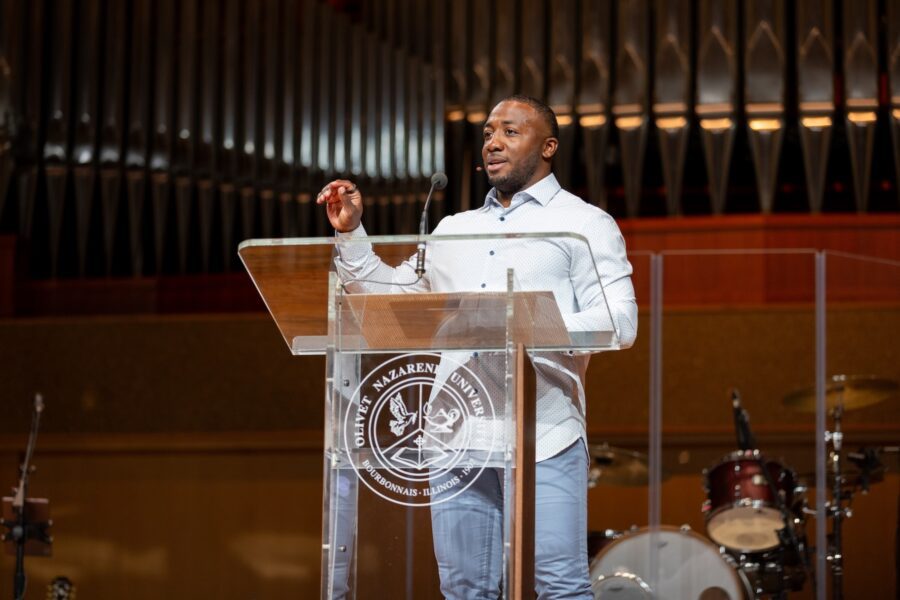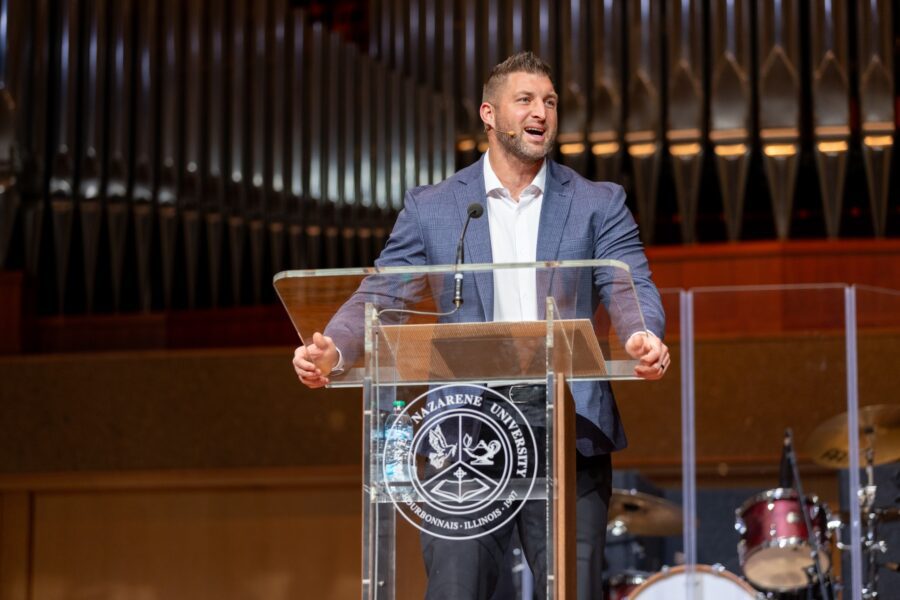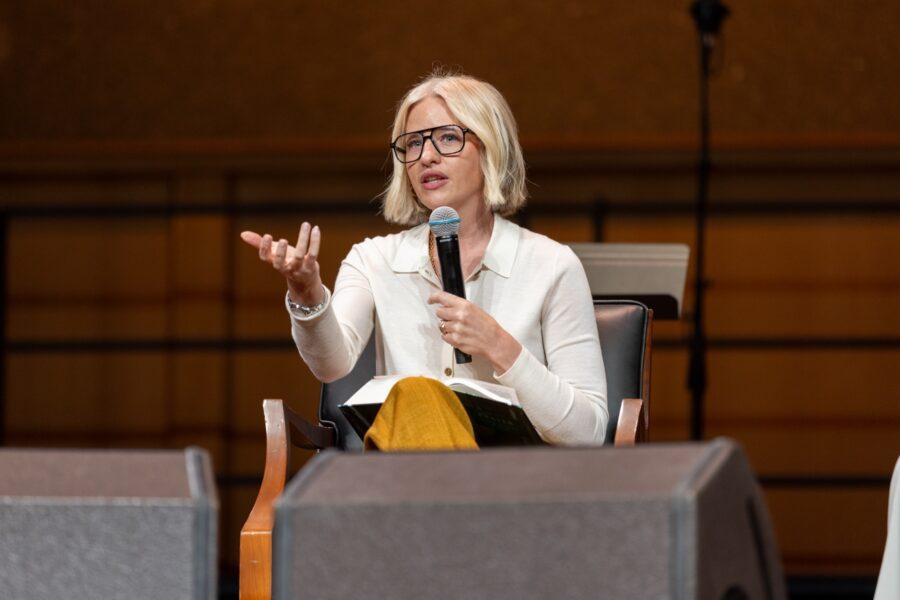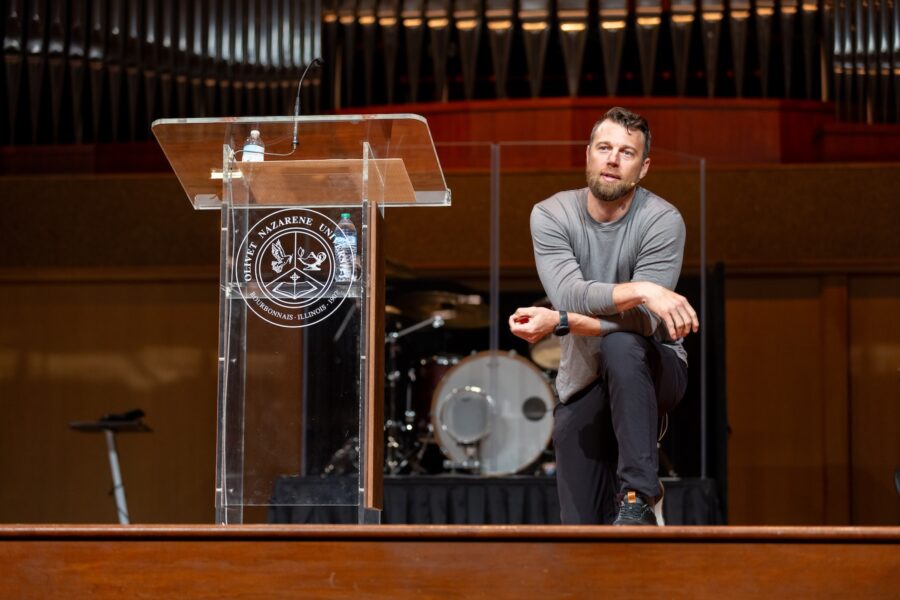
“If you don’t kill the spider, the cobwebs will always come back.” Antonio Marshall used these words to challenge the Olivet community to stop cleaning up the surface issues in their lives—and instead, go after the root causes. Using Scripture, storytelling and wisdom from the book Kill the Spider by Carlos Whittaker, Marshall explained that true freedom and transformation only happen when we deal with the deeper lies we believe.
“If you’ve been following Jesus for a while, you might think you’re free,” Marshall said. “But sometimes, what we think is freedom is really just a break between battles. God wants more for us than temporary relief. He wants lasting transformation.”
Marshall shared a story from Kill the Spider, where a woman repeatedly asked her pastor to pray that God would clean the cobwebs from her life. After several nights of the same request, the pastor stopped her and said, “Tonight, we ask that you kill the spider.”
“Cobwebs are the habits or behaviors that come from the deeper issue,” Marshall explained. “Spiders are the lies we believe—the real problem that keeps showing up in different ways. If you only deal with the cobwebs, they’ll always come back.”
He challenged students to ask themselves: What’s the lie I’ve been believing? and What’s the real root of this struggle in my life?
Marshall pointed to Romans 12:2, where Paul tells the church to be “transformed by the renewing of your mind.” He explained the original Greek word metamorphoō, which is the same word used when Jesus was transfigured on the mountain.
“That word doesn’t mean a small change,” he said. “It means complete transformation—like a caterpillar becoming a butterfly. And if you’re going to fly, you’ve got to stop crawling.”
Marshall encouraged students to imagine themselves going through a spiritual metamorphosis.
“You may need to pause. You may need to pull away from certain people or places. But that cocoon season is where transformation happens,” he said.
The Thing Beneath the Thing
Referencing another book, The Thing Beneath the Thing by Steve Carter, Marshall offered a framework to help students identify what’s really going on inside them:
- Triggers: What sets you off?
- Hideouts: Where do you go to avoid pain?
- Insecurities: What lies do you believe about yourself?
- Narratives: What false stories have you created about others?
- Grace: Can you receive grace for your story?
“Some of us have been avoiding the thing for so long,” Marshall said. “But when you avoid the thing, you also avoid the transformation.”
He reminded students that spiritual strongholds often come from lies we’ve believed for a long time—lies that feel like protection but actually keep God’s truth from getting in.
Patterns that Change Us
Marshall ended with hope, reminding students that change isn’t just spiritual—it’s physical too.
“God created our brains with something called neuroplasticity. That means we can rewire our thinking over time,” he said. “And the habits we practice every day either shape us toward truth—or toward more cobwebs.”
He encouraged students to live out what Jesus described in Matthew: loving God with all their heart, soul and mind. That starts with recognizing the lies, breaking the agreement, replacing them with truth and building new habits.
“You don’t have to stay stuck,” Marshall said. “There’s more freedom for you than just wiping away cobwebs. Go find the spider—and kill it.”
To watch the full chapel message, click here.





